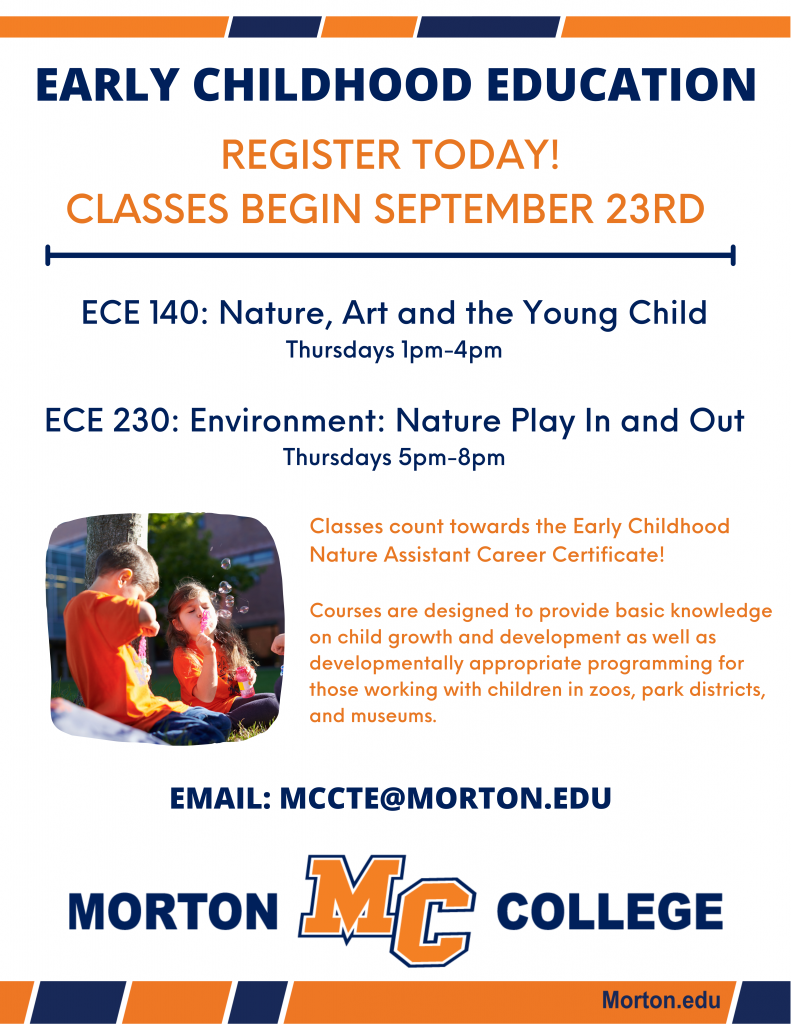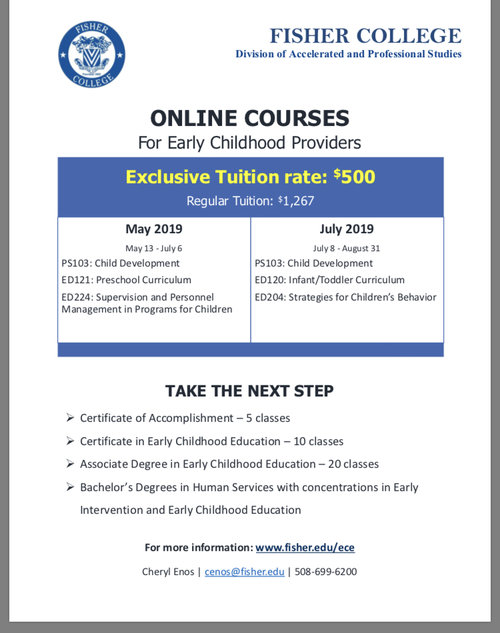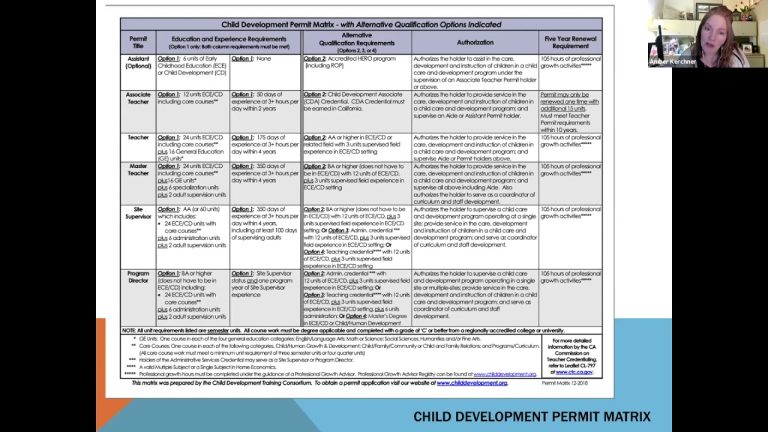How Long is Early Childhood Education Course : Unveiling the Duration

The Early Childhood Education course typically lasts for 1 to 2 years. It provides essential training for individuals interested in working with young children.
Early Childhood Education is a crucial field that focuses on the educational and developmental needs of young children. The course covers various topics such as child development, curriculum planning, and classroom management. It equips students with the necessary skills and knowledge to create a nurturing and stimulating environment for young learners.
Additionally, the program often includes practical experiences in real classroom settings, allowing students to apply their learning in a hands-on manner. Graduates of the course can pursue careers as preschool teachers, childcare workers, or early childhood educators in various settings. With the demand for qualified professionals in this field on the rise, completing an Early Childhood Education course can open up rewarding career opportunities.

Credit: www.rasmussen.edu
Types Of Early Childhood Education Courses
When it comes to early childhood education, there are various types of courses available to suit different career paths and educational goals. Understanding the different types of early childhood education courses can help individuals choose the right program for their needs.
Certificate Programs
Certificate programs in early childhood education are short-term courses that provide fundamental knowledge and skills required to work in the field. These programs typically cover topics such as child development, curriculum planning, and classroom management. Completion of a certificate program can enhance career prospects and serve as a stepping stone to further education in the field.
Associate Degree Programs
Associate degree programs in early childhood education are two-year courses that offer a more comprehensive understanding of child development and early education principles. These programs often include practical training and internships to provide hands-on experience. Graduates of associate degree programs may pursue careers as preschool teachers, daycare supervisors, or child development specialists.
Bachelor’s Degree Programs
Bachelor’s degree programs in early childhood education are four-year courses that delve deeper into advanced teaching methodologies, child psychology, and educational leadership. These programs prepare individuals for roles such as kindergarten teachers, educational administrators, and curriculum developers. Earning a bachelor’s degree can open doors to higher-paying positions and greater career advancement opportunities in the field.
Duration Of Early Childhood Education Courses
Early Childhood Education courses typically range from 6 months to 2 years, providing comprehensive training for future educators. The duration varies based on the program’s level and the institution offering the course.
Duration of Early Childhood Education Courses Early childhood education courses are essential for individuals who aspire to work with young children in educational settings. The duration of these courses varies, depending on the level of education pursued. Here, we will delve into the specific durations of certificate programs, associate degree programs, and bachelor’s degree programs in early childhood education.Certificate Program Duration
Certificate programs in early childhood education typically span around 6 to 12 months. These programs provide a focused curriculum that equips students with fundamental knowledge and practical skills required to effectively engage and educate young children. The coursework may cover topics such as child development, early learning strategies, and classroom management.Associate Degree Program Duration
An associate degree program in early childhood education usually lasts approximately 2 years. This comprehensive program delves deeper into child psychology, educational methodologies, and instructional techniques. Students gain a more in-depth understanding of child development and how to create nurturing learning environments for young children.Bachelor’s Degree Program Duration
For those pursuing a bachelor’s degree in early childhood education, the typical duration ranges from 4 to 5 years. This extensive program offers a robust curriculum that encompasses advanced pedagogy, curriculum design, and educational leadership. Graduates are equipped to assume leadership roles in educational settings and contribute significantly to the development of young learners. In conclusion, the duration of early childhood education courses varies based on the level of education pursued, with certificate programs lasting approximately 6 to 12 months, associate degree programs spanning around 2 years, and bachelor’s degree programs extending over 4 to 5 years. These programs aim to equip individuals with the knowledge and skills necessary to positively impact the lives of young children in educational settings.Factors That Affect The Duration Of Early Childhood Education Courses
Factors that Affect the Duration of Early Childhood Education Courses
Mode Of Study
The mode of study plays a significant role in determining the duration of an early childhood education course. Full-time study typically allows students to complete the program more quickly compared to part-time study. Additionally, online courses may offer more flexibility in scheduling, potentially shortening the overall duration of the program.
Credit Transfers
Credit transfers can have a direct impact on the length of an early childhood education course. Students who have completed relevant coursework at other institutions may be eligible to transfer credits, reducing the total number of courses required to graduate. This can effectively shorten the duration of the program, allowing students to complete their education more rapidly.
Course Load
The course load refers to the number of credits or courses a student takes each semester. A heavier course load, involving more classes per term, can expedite the completion of an early childhood education course. Conversely, a lighter course load may extend the duration of the program, as students take fewer courses at a time.
Program Structure
The structure of the early childhood education program itself can impact its duration. Some programs may offer accelerated pathways, allowing students to progress through the curriculum at a faster pace. On the other hand, programs with extensive practicum or field experience requirements may necessitate a longer duration to fulfill these components, thereby extending the overall length of the course.
Choosing The Right Early Childhood Education Program
Choosing the Right Early Childhood Education Program is a crucial decision that can shape your future career in the field of early childhood education. With the increasing demand for qualified professionals in this sector, it’s essential to select a program that aligns with your career goals and provides a comprehensive education in this specialized area. In this section, we’ll explore the key factors to consider when choosing an early childhood education program, the importance of program accreditation, and the career opportunities that await you upon completion of the course.
Factors To Consider
When embarking on your journey to pursue a career in early childhood education, several factors should be taken into account when selecting the right program.
- Curriculum: Ensure the curriculum covers a wide range of topics including child development, early childhood education methods, and classroom management.
- Practical Experience: Look for programs offering hands-on experience through internships or practicum opportunities in real educational settings.
- Flexibility: Consider the program’s flexibility, including part-time or online options, to accommodate your schedule and lifestyle.
- Faculty Expertise: Investigate the qualifications and experience of the faculty members to ensure you’ll be learning from knowledgeable and experienced educators.
Program Accreditation
Program accreditation is a critical aspect to consider when choosing an early childhood education program, as it reflects the quality and standards of the education provided.
It’s essential to verify that the program is accredited by recognized accrediting bodies such as the National Association for the Education of Young Children (NAEYC) or the Council for the Accreditation of Educator Preparation (CAEP).
Accreditation ensures that the program meets specific educational standards and prepares you to meet the requirements for licensure and certification in the field of early childhood education.
Career Opportunities
Upon completing an early childhood education program, a myriad of rewarding career opportunities await you.
Preschool Teacher: With your early childhood education qualifications, you can embark on a fulfilling career as a preschool teacher, nurturing young minds and facilitating their development.
Childcare Center Director: Your education and training will equip you to take on leadership roles as a childcare center director, overseeing operations and ensuring high-quality care for children.
Early Intervention Specialist: You can make a difference in the lives of children with special needs by pursuing a career as an early intervention specialist, providing crucial support and guidance.
Cost Of Early Childhood Education Courses
Early Childhood Education (ECE) courses are designed to provide students with the knowledge and skills necessary to work with young children. The length of ECE courses can vary depending on the program, but most programs can be completed within two years. However, the cost of these programs can vary greatly depending on the institution.
Tuition Fees
Tuition fees for ECE courses can range from a few thousand dollars to tens of thousands of dollars. The cost of tuition will depend on a variety of factors including the institution, the length of the program, and the location. Public institutions generally have lower tuition fees than private institutions.
For example, at the University of California, Los Angeles (UCLA), the tuition fee for the Early Childhood Education Certificate program is $5,250. In contrast, at the private institution, Pacific Oaks College, the tuition fee for the Bachelor of Arts in Early Childhood Education program is $39,360.
Additional Costs
In addition to tuition fees, students should also consider additional costs associated with ECE courses. These costs can include textbooks, materials, and other fees.
At UCLA, students will need to purchase textbooks and course materials, which can cost up to $500. At Pacific Oaks College, students will need to pay for a background check, which costs $70, and a graduation fee, which costs $100.
It is important for students to research the costs associated with ECE courses before enrolling in a program. Students should also consider financial aid options, such as scholarships and grants, to help offset the cost of tuition and other fees.

Credit: www.earlychildhoodeducationandcare.com
Scholarships And Financial Aid For Early Childhood Education Students
Early Childhood Education students can access various financial assistance options to support their studies. Scholarships and financial aid are crucial for many students pursuing a career in this field.
Types Of Scholarships And Financial Aid
Early Childhood Education students can benefit from different types of financial support, including scholarships, grants, and loans. These options help alleviate the financial burden of pursuing a degree in this field.
Application Process
Applying for scholarships and financial aid involves several steps that students need to follow diligently. The application process may vary depending on the institution or organization offering the financial assistance.

Credit: www.earlychildhoodeducationandcare.com
Frequently Asked Questions
Which Course Is Best For Early Childhood Education?
The best course for Early Childhood Education is a Bachelor’s in Early Childhood Education.
How Many Levels Are There In Early Childhood Education?
Early Childhood Education typically has three levels: preschool, kindergarten, and primary education. Each level focuses on different developmental stages.
Is An Early Childhood Education Degree Worth It?
Yes, an Early Childhood Education degree is worth it as it provides valuable skills for working with young children. It opens up opportunities in various educational settings and can lead to a fulfilling and rewarding career. The demand for qualified early childhood educators is also expected to grow.
What Is The Highest Degree In Early Childhood Education?
The highest degree in Early Childhood Education is a Doctorate (Ph. D. ) in Early Childhood Education.
Conclusion
In a nutshell, the duration of an early childhood education course varies. Factors like format and level affect the length. Remember, choosing the right course is crucial for your career. Take time to research and find the best fit for your goals.
Your journey to becoming an early childhood educator awaits!
Lorem Ipsum is simply dummy text of the printing and typesetting industry. Lorem Ipsum has been the industry’s standard dummy text ever since the 1500s, when an unknown printer took a galley of type and scrambled it to make a type specimen book.





